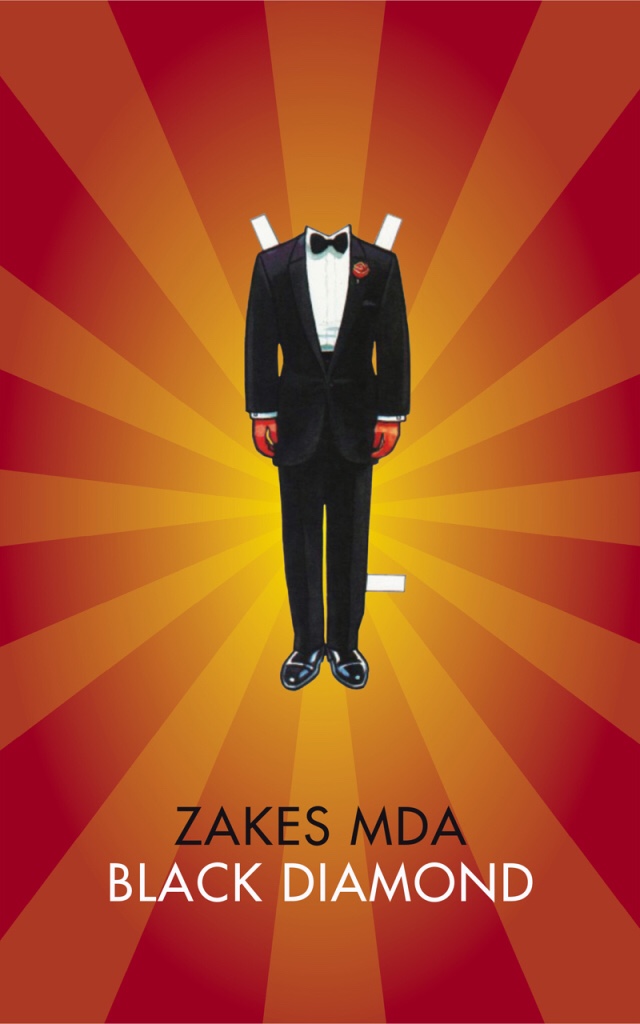
Don Mateza is an aspiring “black diamond”, an ex-guerilla fighter seeking to turn his old contacts to his advantage to become a fat-cat BEE (Black Economic Empowerment policy) beneficiary in post-apartheid South Africa. He is aided, or rather pushed by his ex-supermodel girlfriend, Tumi, who now operates her own modelling agency. She knows how to make him look the part, financing his car (a Saab) and clothing him in lemon Versace suits. But given his past, Don isn’t such a hard man. He wants to earn his promotion on merit, and he loves to cook and to cuddle his fluffy White Persian cat.
Kristin Uys is a very proper magistrate. Dowdy even. Yet she controls her courtroom with an iron hand, at the same time as bending the rules to wage a personal crusade against the sex trade. She lives alone with a mangy adopted cat, that she hasn’t bothered to name. Only her alcohol consumption and other personal proclivities suggest that she is not as together as her public persona would suggest.
Stevo and Shortie Visagie are Afrikaner small time crooks and pimps. Throwing out a case against them for lack of evidence frustrates Kristin, and she finds reason to jail Stevo for contempt of court. He machinates a program of harassment from behind bars to teach her a lesson, which she fails to report to the police as she feels she can handle it.
Which she can, until the moment she can’t. Cue Don being allocated as a personal body guard, an assignment he takes on to guarantee the desired promotion to CEO of the security company. The rest of the story, you could say, is what happened when Don met Kristin …
The black body guard protecting the resentful white woman. A power play, like so many of the relationships in the book. Don is Tumi’s hen-pecked ill-matched lover (she Hates cats (yes, with a capital H), so here is an opportunity for him to assert himself. Kristin is having none of it. In many ways it’s a typical rom-com story arc, and the author did start this off as a film-script. Yet their personal drama is a metaphorical allusion to ongoing societal tensions.
Just because mixed-race relationships are now permitted, and racial harmony mandated, doesn’t mean things will be straightforward.
There’s also an ongoing power struggle in the Visagie clan. Stevo and Shortie may be the criminals, but who rules the roost? That would be Ma Visagie – be in no doubt about that. Yet Aunt Magda, the boy’s ex-nursemaid, emboldened by what she believes is a successful protest campaign (which, ironically, used anti-apartheid demonstration techniques), foolishly attempts to stage a coup. She is seen off by Ma Visagie with short shrift in a scene which I found rather comic.
This mixture of comedy and perceptive observation makes Zda’s satire of modern day South African society so engaging. It’s pacy, moving through different areas and classes of Johannesburg. It’s mouth-watering – I do like the sound of Dom Mateza’s culinary creations. It has comic moments, while others are full of pathos. It has moments of real danger too. Overall, Black Diamond is an entertaining (if at times X-rated) story, in which both Don Mateza and Kristin Uys question their respective desires and directions of travel and learn the importance of cats to effective reconciliation.
It would make a great film.
This sounds like great fun!
It is!
Somehow I missed this one. Disappointed cos it sounds great.
Not to worry. i know you downloaded some I didn’t.
I’m sure I made this comment but can’t see it . So will say are you planning to read Seven days in August. I will be interested in your reaction.
I didn’t download that one, Penelope.
I’m laughing! Maybe our next read will be the same. Or, maybe not. I’m enjoying it all anyway.
Good luck with your Seagull reads, I hope to one as well. This sounds like a unique read!
Interesting I downloaded this so will read it at some point I’m reading the ones I have on my shelves
I read a different one by him – the Whale Caller. A very unusual premise for the book since it’s about a guy who forms a special relationship with a whale to the detriment of his relationship with a woman…..
Quirky. i’ll look out for it.
I have this book on my bookshelf. It is one of my favourite South African books 🙂